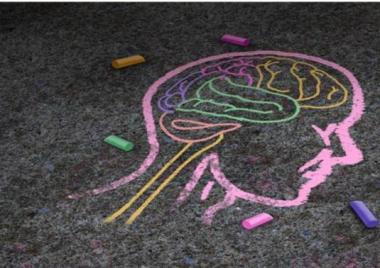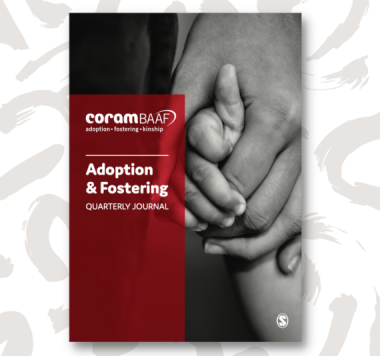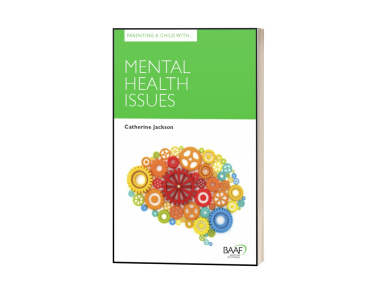Children in care often face significant mental health challenges due to the disruptions and traumas they have experienced in their lives. Separation from family, multiple placements, and a sense of instability can contribute to feelings of anxiety, depression, and low self-esteem. Many children in care have experienced abuse, neglect, or other forms of trauma, further exacerbating their mental health needs.
It is crucial for carers, social workers, and mental health professionals to provide tailored support and interventions to address these challenges. Building trusting relationships, creating safe environments, and offering therapeutic interventions can help children in care develop resilience and cope with their mental health struggles, ultimately promoting their overall well-being and long-term success. Explore our resources below!
Post adoption depression
Post-adoption depression (PAD) is more common than often realised, but it can be difficult for adoptive parents to discuss. If left unaddressed, PAD can lead to long-term challenges for both the parent and child. Adoptive parents may fear that sharing their emotional struggles could jeopardise the adoption. The adoption process itself can be exhausting, with intense emotional and logistical demands. It is crucial for parents to know they are not alone and that their experiences are valid.
How seriously are we considering the impact of intergenerational trauma?
Dr Lynn Snow reflects on her visit to the Salt River Maricopa tribal nation, where she explored their adoption, fostering, and kinship agency. She shares insights into the generational trauma experienced by the nation and raises important questions about how we can improve our support and practices.
Crossing cultures
Dr Lynn Snow considers the importance of intercultural communication in healthcare and children’s social care, emphasising how understanding diverse cultures enhances collaboration and trust. It highlights how a strengths-based approach leverages cultural differences to provide more personalised and effective care.
Read moreTransport, terminology and tiredness: reflections from research
Dr Lynn Snow shares her reflections whilst travelling in Europe as part of her Churchill Fellowship research. Her experiences of terminology and tiredness lead her to think about the unfamiliarity and newness that children and young people in care can face.
Read moreThe mental health of children in state care in England
Around two-thirds of children are taken into State care due to experiences of severe maltreatment such as abuse or neglect. Consequently, being taken into care is an intervention for this vulnerable group of children, with the expectation that State care will then ameliorate or stabilise their mental health. Despite this, numerous research studies indicate that mental health concerns in this vulnerable child population remain high.
Mental ill health experienced in childhood and adolescence can impact an individual’s short and long-term health, well-being, and socioeconomic trajectories whilst exerting long-term pressure on the State health and welfare systems through its impact on mental health services and the cost of interventions. To facilitate recovery and better mental health, it is important to understand if and how the mental health of children in care varies over time and the contextual factors that influence their mental health.
Advertisement

Watch the webinar recording
During our Learning from Research webinar, we highlighted practice and policy-relevant findings from two ESRC-funded research studies which set out to answer these questions, utilising (1) a 5-year longitudinal follow-up of the mental health of children in care in England through secondary analyses of longitudinal, national-level administrative data and (2) two waves of a survey of children and young people aged 11-18 years in care.
Watch hereNavigating online life with children and young people
Explore our collection of resources, developed by Dr Vicki Walker and Jane Poore. The publication date of the materials will span over the next 12-18 months. Delve into the impacts of online use on physical and mental health, particularly in adolescent development. Explore topics such as addiction, gambling, and the role of social workers in assessments.
Mental health
The negative mental health impacts of social media and online content is worthy of discussion and considered thought. This moves beyond ideas of cyberbullying and trolling/abusive interactions to misinformation and disinformation which can lead to increased vulnerability for health, relationships, radicalisation and isolation.
See moreBlogs and articles
Advertisement

The impact of long-term state care on the mental health of children
Dinithi Wijedasa, Associate Professor in Child and Family Welfare at the University of Bristol shares research evidence to help address the high mental health needs of children and young people in care.
Read moreA spotlight on the mental health of care-experienced children and young people
Liam Hoskins, our events officer, reflects on our in-person event that explored current research on the mental health of children in care.
Read nowAdoption & Fostering journal
Members, remember to log in to your website account to access articles and back issue of our Adoption & Fostering journal.CoramBAAF members have free access to all issues of the journal since 1977.

Volume 47 (Issue 4, December 2023)
Care-experienced youth often face earlier, severe, and chronic mental health challenges compared to their peers. Dive into our case study on the creation of a Compassion-Focused Therapy (CFT) group for young people with a history of abuse and neglect, delivered by psychologists in a social care service.
Read the open access articleEarlier articles
- A call to action: The need for routine mental health support for care-experienced children and young people
- ‘But what does that mean for me?’: A project to improve the information given to prospective adopters about a child or young person’s health background and future implications of this
- Attachment state of mind and trauma in mother and baby home adoptees
- Dissociation, identity distress and rejection sensitivity in adult adoptees
- Is the future frightening? Anxiety among young people in care in Poland as they move to independence
Publications

Parenting Matters
This series is primarily aimed at adoptive parents, kinship carers and foster carers, but many professionals who work with children and young people also find these books helpful. Accessibly written, they offer a professional view on parenting challenges such as toileting issues, children affected by domestic violence and children with emotional and behavioural difficulties, as well as accounts by parents and carers themselves.
Search our bookshopParenting Matters: Parenting a child affected by self-harm issues
Self-harm in children and young people occurs across society, and is very worrying for parents, carers and indeed the children themselves. This guide specifically explores self-harm in children and young people who are fostered or adopted.
See moreParenting Matters: Parenting a child with eating and food issues
Eating and food issues can be common in children – but for those who are looked after and adopted, these problems can last a lot longer or reoccur at later ages, affecting family life and meaning that children are less able to benefit from supportive care.
See more